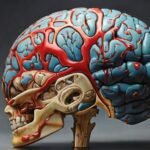
The effects of Post-Traumatic Stress Disorder (PTSD) are profound, influencing not only individuals but also their relationships with loved ones.
It is crucial to comprehend how PTSD shapes these connections and acquire effective coping strategies to ensure the maintenance of healthy relationships.
What is PTSD?
Post-Traumatic Stress Disorder (PTSD) is classified as an anxiety disorder that may manifest following exposure to a traumatic event, such as combat situations, physical assault, or natural disasters.
This condition is characterized by a range of symptoms, including but not limited to flashbacks, nightmares, heightened anxiety, and persistent, intrusive thoughts related to the traumatic incident.
Individuals experiencing PTSD may find themselves grappling with these distressing symptoms, impacting various facets of their daily lives and overall well-being.

How Does PTSD Affect a Relationship?
PTSD can significantly strain relationships, leading to challenges in trust, communication, and intimacy.
According to the U.S. Department of Veterans Affairs, approximately 5 to 10% of individuals with PTSD may face difficulties in their relationships, including issues related to intimacy, sex drive, communication, avoidance, and attachment.
Intimacy
PTSD can result in a diminished interest in enjoyable activities, a negative self-image, and difficulties in establishing emotional connections, thereby affecting both emotional and sexual intimacy.
The individual may struggle to engage in meaningful interactions or activities with their partner, leading to feelings of distance and disconnection.
Sexual interest
The impact of PTSD on one’s sexual interest and functioning can be multifaceted and varies based on the type of trauma experienced.
The individual may experience a decreased sex drive, avoidance of sexual encounters, or trust issues that inhibit their ability to engage in intimate relationships.
This can create tension and frustration within the relationship as partners navigate these challenges together.
Communication
PTSD often makes communication challenging for individuals, resulting in misunderstandings, withdrawal, and difficulty expressing emotions and needs.
The affected individual may struggle to articulate their thoughts and feelings, leading to breakdowns in communication and increased tension within the relationship.
Partners may find it challenging to understand the experiences and emotions of the individual with PTSD, further exacerbating communication barriers.
Attachment
Individuals with PTSD may experience feelings of detachment from others, making it difficult to establish and maintain emotional connections.
This detachment can lead to a lack of emotional responsiveness and an inclination to push others away, including romantic partners.
As a result, relationships may suffer as the individual with PTSD grapples with feelings of isolation and disconnection.

Tips for People with PTSD to Improve Their Relationships
For individuals coping with Post-Traumatic Stress Disorder (PTSD), enhancing relationships involves implementing thoughtful strategies that promote understanding, communication, and mutual support.
Here are detailed tips for individuals with PTSD to improve their relationships:
Seek professional help
Engage in individual therapy or couples counseling to gain valuable support and guidance in navigating the complexities associated with PTSD.
A mental health professional can offer tailored strategies to address specific challenges within the relationship.
Educate yourself and your partner
Invest time in understanding the symptoms and effects of PTSD.
Educating both yourself and your partner fosters empathy, facilitating more effective communication and the establishment of healthy boundaries.
Knowledge empowers both individuals to navigate the journey together with increased understanding.
Practice self-care
Prioritize your mental and emotional well-being by actively engaging in self-care.
Seek individual therapy to address personal challenges, explore support groups to connect with others facing similar experiences, and participate in activities that promote relaxation and stress reduction.
A resilient and supported individual can contribute positively to the relationship.
Open Communication
Cultivate a culture of open and honest communication within the relationship.
Encourage discussions about feelings, needs, and concerns.
Expressing vulnerabilities fosters trust and understanding.
It is equally important to be receptive to your partner’s experiences, creating a safe space for mutual sharing.
Learn your partner’s triggers
Gain insight into your partner’s triggers, the specific stimuli that evoke distress associated with their trauma.
Understanding these triggers enables you to support them in healthy ways and minimizes their exposure to potential stressors.
This proactive approach helps your partner feel less isolated and better equipped to cope.

Create a safe home environment
Whether cohabiting or hosting your partner, strive for a home that exudes predictability and lacks potential threats or chaos.
Consistent routines contribute to a sense of security.
Ensure emotional and physical safety, offering a space where your partner can let their guard down without fear.
A stable and secure home environment serves as a cornerstone of support.
Set realistic expectations
Recognize that the journey to recovery from PTSD is a gradual process.
Setting realistic expectations is essential for both yourself and your partner.
Embrace patience and understanding as you navigate through the complexities of the healing process.
This acknowledgment fosters a compassionate atmosphere conducive to growth.
Establish boundaries
Create a framework of boundaries within the relationship, emphasizing mutual respect and understanding.
Openly discuss triggers, identifying potential sources of distress, and collaboratively devise strategies to manage difficult situations.
Setting and respecting these boundaries contributes to a sense of safety and predictability.
Be patient and understanding
Emphasize patience and understanding as fundamental elements of a successful relationship.
Acknowledge that recovering from PTSD is an ongoing process, requiring time and compassion.
Cultivate an atmosphere where both partners feel supported and encouraged, fostering a space for open communication about progress and setbacks.
Engage in healthy coping strategies
Encourage the adoption of healthy coping strategies to manage PTSD symptoms.
Activities like mindfulness, regular exercise, and creative outlets can significantly contribute to reducing the impact of PTSD on the relationship.
These positive coping mechanisms empower individuals to navigate challenges and enhance overall well-being.

Conclusion
The impact of PTSD on relationships is significant, influencing trust, communication, and intimacy.
To maintain healthy and supportive connections, it’s crucial for individuals and their partners to comprehend the effects of PTSD on relationships and employ effective coping strategies.
This proactive approach fosters a collaborative effort towards sustaining positive and understanding connections.
FAQs
Symptoms can include flashbacks, nightmares, avoidance, hypervigilance, emotional numbing, and negative thoughts and beliefs.
No, with understanding, communication, and support, strong relationships can thrive despite PTSD.
Different traumas can trigger diverse symptoms, affecting relationships differently.
Seeking professional help, learning coping mechanisms, and communicating openly with loved ones can make a positive difference.


